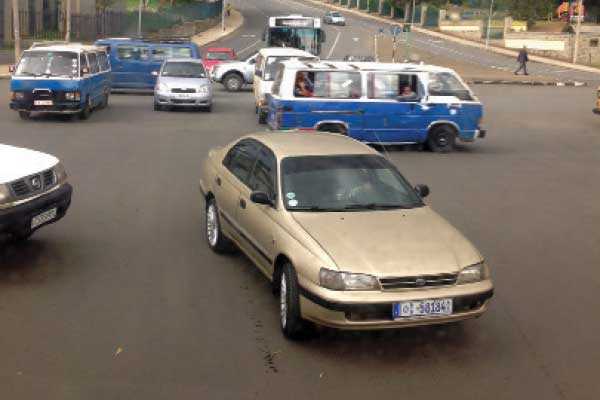Letter from Abyssinia
I have a confession to make: while the whole of Botswana was transfixed by rapper, Kast’s torturous yet brave fundraising 1000km walk from Maun to Francistown I remained a disinterested observer. I was having a journey of mine. However, mine was a tumultuous emotional one, induced by an invite from the Ethiopian Ambassador to Botswana.
This is one invite that immediately sparked my interest. Who would not want to visit a country with such a peerless history? This is one country which hosted great Pan-African minds and where iconic speeches and debates were made. However, goals set through this great speeches delivered by iconic figures such as Kwame Nkrumah and Thomas Sankara remain but just a mirage with many African countries turning a deaf ear to the appeals from their African brothers.
One will recall the May 1963 speech at the founding of the Organisation of African Unity (now AU) by Ghana’s first president Kwame Nkrumah as he cajoled his counterparts with his famous “We must unite now or perish” mantra. He called for Africa to unite and use Africa’s resources to service “our people.”
“The resources are there. It is for us to marshal them in the active service of our people. Unless we do this by our concerted efforts, within the framework of our combined planning, we shall not progress at the tempo demanded by today’s events and the mood of our people.” Unfortunately many African leaders decided otherwise. African leaders remain a disjointed lot.
As Kast was limping his way to Gaborone my emotional journey took me to Addis Ababa and I was reminded of Thomas Sankara’s daring speech that he made in the OAU hall on African debt. The pan-African theorist and President of Burkina Faso, Africa’s Che Guevara rallied his counterparts to not pay the debt they owe the West.
“Colonisers are those who indebted Africa through their brothers and cousins who were the lenders. We had no connections with this debt. Therefore we cannot pay for it,” he said at the time. Three months down the line he was assassinated.
At Sir Seretse Khama International Airport I am joined by Btv’s Mpho Therego and Koketso Mmei. The Captain of the Ethiopian Airways explains to us that we will fly over the Kalahari Desert, Victoria Falls, Tanzania and Kenya. As he was announcing this, my mind was already in Ethiopia, the land of Emperor Haile Selassie I and the breeding ground of pan-Africanism.
We land at Bole International Airport in Addis Ababa in the evening of 14th March. The year of the Lord here is 2009. I am not sure about my colleagues but I felt like a kid watching some sort of a scifi movie. Just the thought that I left Gaborone on 14 March 2017 and arrived five hours later in Ethiopia in March 2009 triggered some funny imaginations. I felt like I was rewinding my life seven years back. Based upon the ancient Coptic Calendar, the Ethiopian calendar is seven years behind. At the airport our hosts were however nowhere to be found and we learn later that they were running one hour late.
The arrangement was that we will get our visas on arrival and the airport officials were now demanding that we pay 30 USD each for our visas. This tested our negotiation skills. Our argument was that our hosts should pay. Being less of negotiators Koketso and I leave everything to Mpho but to no avail. I offer to pay and get a refund from either the Governor of the Ethiopian Bank or the Minister of Foreign Affairs. Mpho is having none of it and quips, “We will rather sleep at the airport” until the ‘rescue team’ arrives.
Koketso suggests we phone our embassy while Mpho feels we will get through our checkpoint.
As for me I just wanted to be in Ethiopia, whether at the airport or in a spacious hotel in the city. When the team finally arrives, we get a handwritten visa stating that we are here for the CAF elective congress. As we hit Addis Ababa, Ethiopia’s commercial and cultural hub, I finally breathe pan-Africanism. There are no traffic lights in Addis Ababa and many cities that we visited. No painted lanes either, and also no road rules to follow, but amazingly no road accidents. The busy intersections in the city looked chaotic to me. Drivers just press their horns to let others know of their move. The drivers who on many occasions don’t know what the other driver is planning to do wait patiently until they read the other driver’s move.
With a population of over 5 million people driving in Addis Ababa with no traffic lights to control traffic and road rules seems like a miracle.
The country is going through a construction boom. From lodges, Industrial Parks and housing projects, there is a lot of construction going on in Ethiopia. Modern cities such as Adama and Hawassa are less populated and more appealing to live in. It is in Adama that I learn of CAF president Issa Hayatou’s downfall from Africa’s football governing body. Good riddance. After holding onto power for 27 odd-years change was inevitable. And change did come in the plenary hall of the African Union House in Addis Ababa. It had to be that hall. It had to be in Ethiopia. Thank God I was there!






